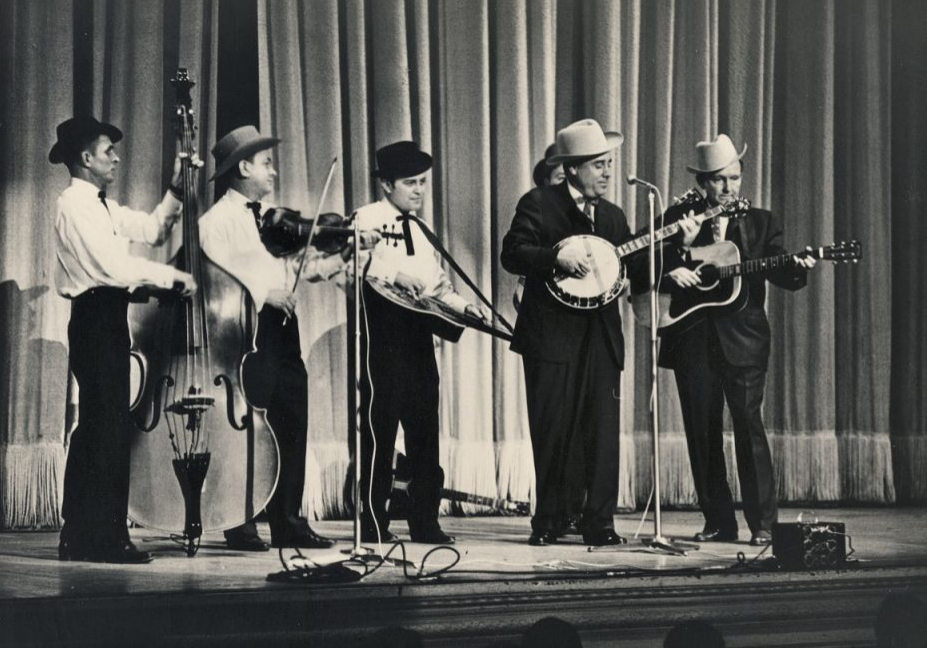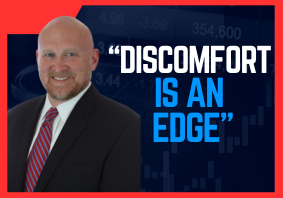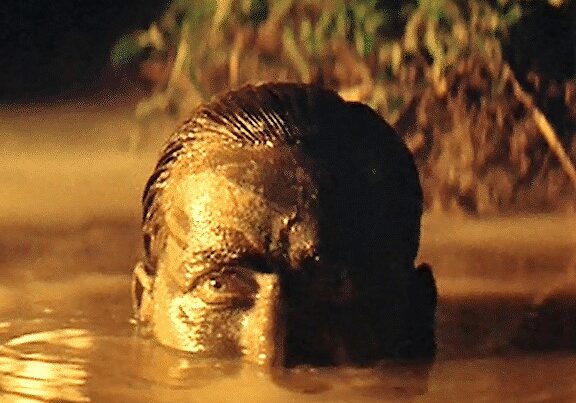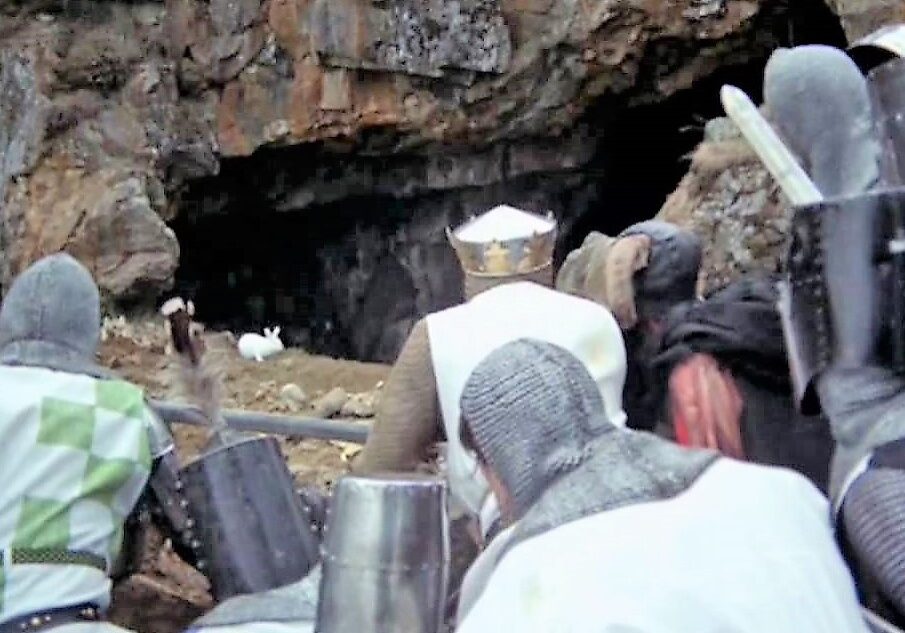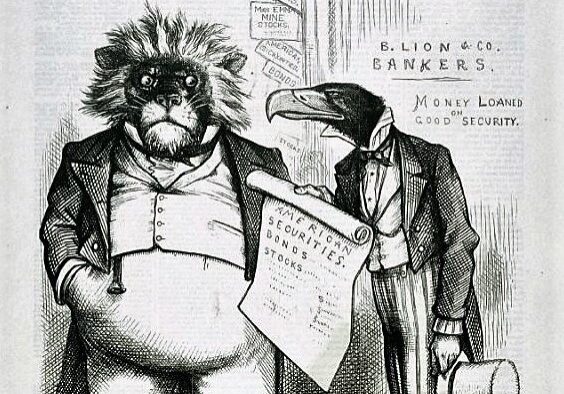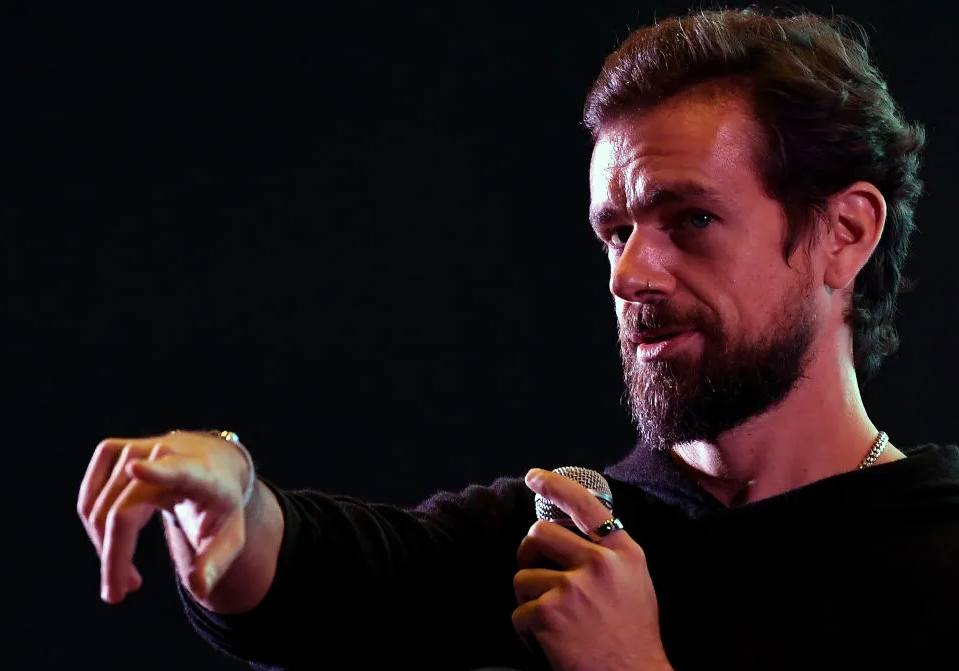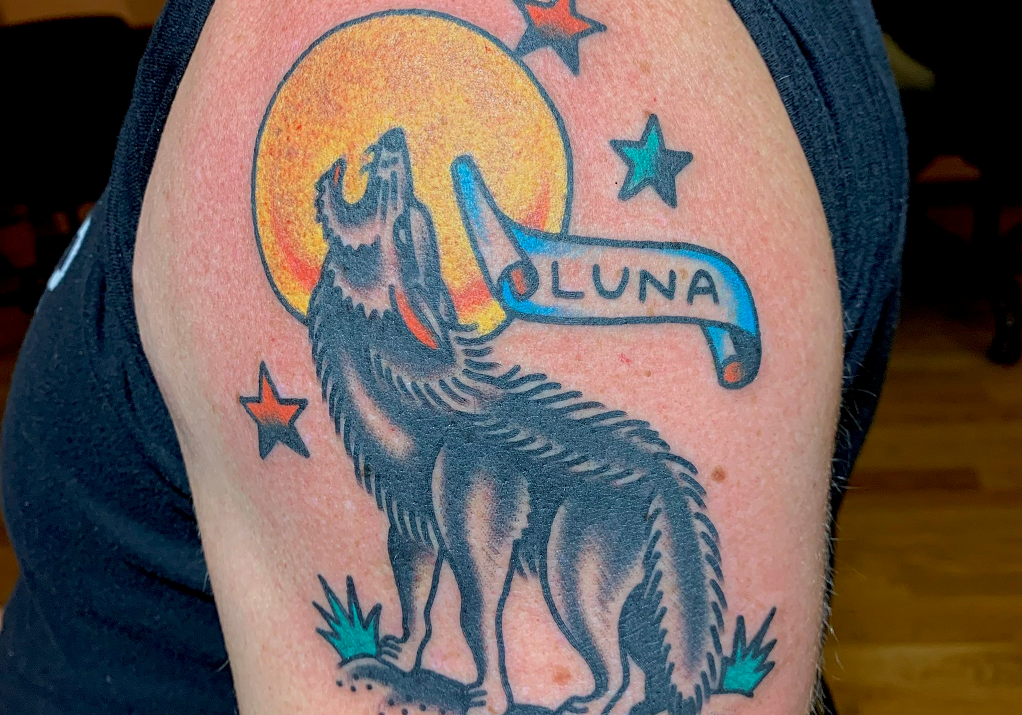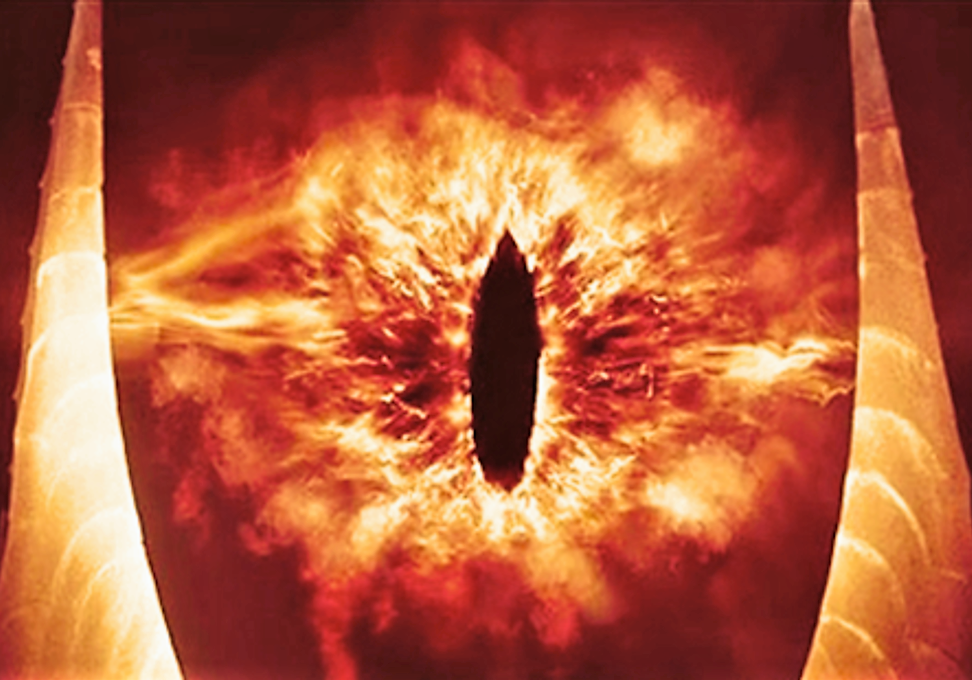We have suffered a devastating flood in Texas.
I believe an even more devastating Flood is to come.
Now we must build an Ark of story. Now we must build an Ark of love.

John Darnielle tells an incredible story involving his habit of finding out what music people were into.
On an overnight train ride, he spotted some older kids/young adults sneaking off to drink beers and smoke.
He got one of the guys to himself, asked his standard music question, and received the answer, “Ozzy Osbourne.”
All the concerts or videos or posters couldn’t deliver the weight some cooler, older, stranger on a train could deliver.
Nothing passes passion down like word of mouth or quietly shared experiences. For as much self-discovery as I’ve done, there’s still an act of curation at the core of everything I love.
My Ozzy experience (tied to my dad and classic rock radio) is no different than my Beastie Boys experience in this way (tied to a school/church friend’s older brother).
With Ozzy’s passing, I’m guessing – if you’re like me – you’ve been taking all sorts of reflections in on his career.
I keep seeing YouTube videos and reading obituaries and falling down all sorts of rabbit holes – but I think I’ve found the one that will stick to me far into the future.
John Darnielle wrote my favorite Ozzy obit.
Read more at cultishcreative.com
Classic Rock radio was THE radio choice with my dad in the car on the way to school for my entire childhood. When I say that before 3rd grade, I knew to automatically do the “ay ay ay” vocal at the beginning of “Crazy Train,” or – that probably by 5th grade I could play “Iron Man” on guitar, I’m being as serious as I am nostalgic.
The news of Ozzy Osbourne’s passing took me there this week. It took me to being a kid, knowing the music was powerful, and recognizing as I entered my mid-90s teenage years that I wanted to know more about them during that alternative moment. The stories would come with age (and better internet access). But, what started with those “he bit a head off a bat” tales, gradually evolved into a much deeper understanding and appreciation – that I don’t think we talk about enough.
What might be my favorite part of the Ozzy/Black Sabbath history is how much of an impact they had on music despite not seeming that revolutionary by modern ears. And, I get it. You don’t hear Pantera or Slayer or – even (the side project) Down or, more recently – Power Trip, or ANY of those great bands, and not think Sabbath sounds a little tame in comparison.
And you’re not wrong. BUT – then somebody tells you, like a variation on the Simpsons joke, how Black Sabbath did it first, and your world momentarily stops turning once you accept it.
Read more at cultishcreative.com
Sunday Music: AI And The New Agency Style
The Beastie Boys in 1986 were three friends making each other laugh with samples, drum machines, and inside jokes that scaled into cultural movements. Their approach offers the perfect mental model for how we should think about AI today – not as replacement intelligence, but as creative samplers that reveal how human creativity actually works. Just like a drum machine isn’t a drummer but shows you how drumming works, AI agents can’t replace human agency but can illuminate it. The key insight from Seth Godin and this entire exploration: we’re not building digital brains, we’re building culture machines that compress and reconstruct patterns of human expression. The magic happens when you remember that whether it’s 1986 or 2025, you better be doing this with and for your friends.
Building Bridges: Why Gen X and Millennials Hold the Keys to Community
Amy Poehler’s generational joke reveals a deeper truth: Boomers believe money matters most, Gen Z questions if money even makes sense, and that leaves Gen X and Millennials perfectly positioned to bridge the divide. Through insights from my conversation with Dave Nadig about Neil Howe’s generational theory, we explored how Gen X brings practical wisdom and BS-cutting skills while Millennials bring systemic thinking and urgent motivation for change. The solution isn’t sorting by generation but harnessing generational diversity as strategic advantage. We understand both digital and analog, we can focus on shared problems rather than shared demographics, and we can build institutions that blend old stability with new flexibility. In a world where manufactured conflict destroys real community, this bridge-building might be our best hope.
Joan Westenberg deleted 10,000 notes and 7 years of captured thoughts, choosing to inhabit her first brain rather than build a second one. Ben Hunt writes about building an “Ark of Story” filled with human sacrifice, love, and peace that surpasses understanding. Both understand what I’ve learned through my Personal Archive work: the act of writing things down only matters if it unburdens us and makes us feel sharper. Accumulation as mental weight is as dangerous as any addiction. The question isn’t what system you use to capture knowledge – it’s what that capturing serves. Raw materials don’t mean much, but materials transformed through consciousness create stories worth preserving. Never forget: you are the secret sauce, not the system. If you’re going to capture something, don’t edit yourself out of it.
Read more at cultishcreative.com
Do you know Lindsey Bell? She’s a labor market strategist, TED Talk speaker, and board chair at BetterInvesting who sees economic shifts before they happen.
If not, allow me to introduce you. Lindsey has this incredible ability to spot workforce trends that are still brewing beneath the surface and translate them into actionable insights for investors and workers alike. I wanted to connect with her because she embodies something I value deeply: the courage to call out uncomfortable truths about where our economy is heading, especially when it comes to how we think about work and purpose.
Our conversation is LIVE now on the Just Press Record YouTube channel (and this Cultish Creative Playlist). Listen and you’ll hear her predict the coming explosion of entrepreneurship among skilled workers, why the traditional W2 safety net is cracking, and how community will become the secret weapon for surviving economic fragmentation.
Read more at cultishcreative.com
Do you know John Stoj? He’s a flat-fee RIA who survived Wall Street’s mortgage-backed securities trenches, ran a sushi business during the financial crisis, and emerged as one of the most grounded financial advisors I know.
If not, allow me to introduce you. John spent 15 years navigating everything from Nomura’s trading desk to CDO management (with timing that was spectacularly unfortunate) before building Verbatim Financial. I wanted to connect with him because he embodies something I value deeply: the wisdom that comes from learning what you can’t do through actually trying and failing at it.
Our conversation is LIVE now on the Epsilon Theory YouTube channel (and this Cultish Creative Playlist). Listen and you’ll hear how childhood bullying built resilience, why getting fired twice taught him humility, and how a boss who asked relentless questions saved him from the massive fraud he couldn’t see coming.
Read more at cultishcreative.com
The cure for the cancer of gun culture and police culture is not to be found in reform laws around guns and police, but in reform ideas around culture, ideas that create a new dimension of American society that rejects LARPing and LARPers alike.
Inflation
What made Bitcoin special is nearly lost, and what remains is a false and constructed narrative that exists in service to Wall Street and Washington rather than in resistance.
The Bitcoin narrative must be renewed. And that will change everything.
Sorry, we couldn't find any posts. Please try a different search.
Crypto
Recent Notes
Surprisingly Geometric
Whenever something is surprisingly geometric, it’s probably a good idea to take a step back and ask why. And even when we find some supporting truths, it’s a good idea to keep asking.
The Power of ‘AND’, and the Walmartization of Advice
Behold, the Walmartization of Advice. It will lead to better outcomes for many investors. AND it will lead to worse outcomes for some.
We are Second Foundation Partners
Epsilon Theory began in the spring of 2013 as a series of emails I wrote to myself and a few colleagues, trying to make sense…
Clear Eyes, Full Hearts, Can’t Lose
What to DO when Things Fall Apart. How to make your way in a fallen world, where the electorate is polarized, the market is monolithic, and everyone seems to have lost their damn minds.
It’s not an Answer. It’s a Process.
From Thugs to Douche Bros: the Evolution of the Surveillance State
The Russians managed their surveillance state with banal thugs. We’re building our own surveillance state in America and throughout the West, managed not by thugs but by our own version of banal evil – the douche bro.
A Game of You
We’ve reached a new height (depth, really) of what I call “mirror engagement” on social media. If you don’t see yourself in the Missionary you follow, you get mad. How dare you not reflect my views!
Schrödinger’s Senate Hearing
Most people confuse Schrödinger’s Cat with the Observer Effect. It’s a lot weirder and more important than that. In the Widening Gyre of our political dialogue, it is a powerful illustration of we live in completely different realities.
Notes from the Diamond #1: Always Something New to Learn
Part 1 of a multi-part series that seeks to enhance readers’ deployment of both human and financial capital through the exploration of parallels between money management and professional baseball.
Deadly. Holy. Rough. Immediate.
It’s hard to be larger than life in a smaller than life world. It’s hard to be authentic in your art without being artificial. Good theatre does just that. We’re hoping to do the same in Epsilon Theory.
Missionary Body Language
Google “[name] + finger pointing”. Odds are, there are several shots of that politician shaking his or her finger at you, admonishing you with body language to LISTEN UP, BUB. Because that’s what a Missionary does to create Common Knowledge.
The Chinese Panoptistate
A Twitter user coined the term “Panoptistate” to describe what China is doing with its social data monitoring effort. It’s a good opportunity to revisit the classic ET note about the Panopticon.
Guest Post: The Two Worlds of Data Infrastructure
There are two systems states use to control our data: The Black Mirror version in China, and the western system that is well on its way there. There is another way.
Mailbag: Mastering the Art of French Cooking
In which a fellow Slummerville old-timer writes in with a Savenor’s update: A dream job has been posted, and is now available. But who can afford a dream anymore? Oh, also I got an email from my mom. Hi, mom!
It's a Floor Wax AND a Dessert Topping
Coinbase – do they run a prop desk or don’t they run a prop desk? My answer: it’s not a prop desk. No, what they are doing is worse and less fair to clients than a prop desk.
The Curse of Category
In investing and in life, we are always quick to judge the book by its cover. We’re quicker to judge a book by who wrote it. We’re quickest to judge a book by what shelf it’s on.
Mastering the Art of French Cooking
In which I discuss that one time I followed Julia Child through a grocery store in the least creepy manner I could manage, and the most delicious white corn I’ve ever enjoyed.
But Our Interests Are Aligned!
The modern use of stock-based compensation is a confidence game, in the true sense of the word, that would be very familiar to the Music Man (but he doesn’t know the territory!).
Notes From the Road: Roadkill
Part 2 of the Notes from the Road series, about the value of and problems with adaptive frameworks. In this installment, an exploration of…
You Provide the Pictures and I’ll Provide the War
Billionaires don’t buy media properties as vanity projects, because they care deeply about them as institutions, or for profit. They buy them because they understand the political and economic power of Fiat News.
True Freedoms / Hollow Freedoms
Our liberty is our birthright, not granted to us by the State or the Oligarchs. It is not theirs to give. It cannot be taken away. But we can give it away. Don’t.

John Darnielle tells an incredible story involving his habit of finding out what music people were into.
On an overnight train ride, he spotted some older kids/young adults sneaking off to drink beers and smoke.
He got one of the guys to himself, asked his standard music question, and received the answer, “Ozzy Osbourne.”
All the concerts or videos or posters couldn’t deliver the weight some cooler, older, stranger on a train could deliver.
Nothing passes passion down like word of mouth or quietly shared experiences. For as much self-discovery as I’ve done, there’s still an act of curation at the core of everything I love.
My Ozzy experience (tied to my dad and classic rock radio) is no different than my Beastie Boys experience in this way (tied to a school/church friend’s older brother).
With Ozzy’s passing, I’m guessing – if you’re like me – you’ve been taking all sorts of reflections in on his career.
I keep seeing YouTube videos and reading obituaries and falling down all sorts of rabbit holes – but I think I’ve found the one that will stick to me far into the future.
John Darnielle wrote my favorite Ozzy obit.
Read more at cultishcreative.com
Classic Rock radio was THE radio choice with my dad in the car on the way to school for my entire childhood. When I say that before 3rd grade, I knew to automatically do the “ay ay ay” vocal at the beginning of “Crazy Train,” or – that probably by 5th grade I could play “Iron Man” on guitar, I’m being as serious as I am nostalgic.
The news of Ozzy Osbourne’s passing took me there this week. It took me to being a kid, knowing the music was powerful, and recognizing as I entered my mid-90s teenage years that I wanted to know more about them during that alternative moment. The stories would come with age (and better internet access). But, what started with those “he bit a head off a bat” tales, gradually evolved into a much deeper understanding and appreciation – that I don’t think we talk about enough.
What might be my favorite part of the Ozzy/Black Sabbath history is how much of an impact they had on music despite not seeming that revolutionary by modern ears. And, I get it. You don’t hear Pantera or Slayer or – even (the side project) Down or, more recently – Power Trip, or ANY of those great bands, and not think Sabbath sounds a little tame in comparison.
And you’re not wrong. BUT – then somebody tells you, like a variation on the Simpsons joke, how Black Sabbath did it first, and your world momentarily stops turning once you accept it.

